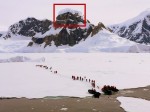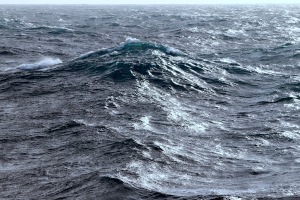Editorial: Here below are three passages from Louise Erdrich’s latest, LaRose (2016). She remains one of my favorites. I read her books slowly because it’s no fun when they run out.
(p. 198) What She Learned. Before the first LaRose died, she had taught her daughter how to find guardian spirits in each place they walked, how to heal people with songs, with plants, what lichens to eat in an extremity of hunger, how to set snares, jig fish, tie nets, net fish, create fire out of sticks and curls of birchbark. How to sew, how to boil food with hot stones, how to weave reed mats and make birchbark pots. She taught her how to poison fish with plants, how to make arrows, a bow, shoot a rifle, how to use the wind when hunting, make a digging stick, dig certain roots, carve a flute, play it, bead a bandolier bag. She taught her how to tell from the calls of birds what animal had entered the woods, how to tell from the calls of birds which direction and what type of weather was approaching, how to tell from the calls of birds if you were going to die or if an enemy was on your trail. She learned how to keep a newborn from crying, how to amuse an older child, what to feed a child of each age, how to catch an eagle to take a feather, knock a partridge from a tree. How to carve a pipe bowl, burn the center of a sumac branch for the stem, how to make tobacco, make pemmican, how to harvest wild rice, dance, winnow, parch, and store it, and make tobacco for your pipe. How to carve tree taps, tap maples, collect sap, how to make syrup, sugar, how to soak a hide, scrape down a hide, how to grease it and cure it with the animal’s brains, how to make it soft and silky, how to smoke it, what to use it for. She taught her to make mittens, leggings, makazinan, a dress, a drum, a coat, a carry sack from the stomach of an elk, a caribou, a woods buffalo. She taught her how to leave behind her body when half awake or in sleep and fly around to investigate what was happening on the earth. She taught her how to dream, how to return from a dream, change the dream, or stay in the dream in order to save her life.
(p.227) He said this firmly, although he still didn’t know exactly what to do besides watch Nola. Sam Eagleboy had told him to sit still and open his mind if he had a problem. LaRose would come back to the grass nest that evening, after Maggie was gone. He would concentrate on the problem. Even if he couldn’t see them, he would ask those people he met in the woods. He would find out what the situation called for.
(p. 290) There are five LaRoses. First the LaRose who poisoned Mackinnon, went to mission school, married Wolfred, taught her children the shape of the world, and traveled that world as a set of stolen bones. Second, her daughter LaRose, who went to Carlisle. This LaRose got tuberculosis like her own mother, and like the first LaRose fought it off again and again. Lived long enough to become the mother of the third LaRose, who went to Fort Totten and bore the fourth LaRose, who eventually became the mother of Emmaline, the teacher of Romeo and Landreaux. The fourth LaRose also became the grandmother of the last LaRose, who was given to the Ravich family by his parents in exchange for a son accidentally killed.
In all of these LaRoses there was a tendency to fly above the earth. They could fly for hours when the right songs were drummed and sung to support them. Those songs are now waiting in the leaves, half lost, but the drumming of the water drum will never be lost. This ability to fly went back to the first LaRose, whose mother taught her to do it when her name was still Mirage, and who had learned this from her father, a jiisikid conjurer, who’d flung his spirit all the way around the world in 1798 and come back to tell his astonished drummers that it was no use, white people covered the earth like lice.



































